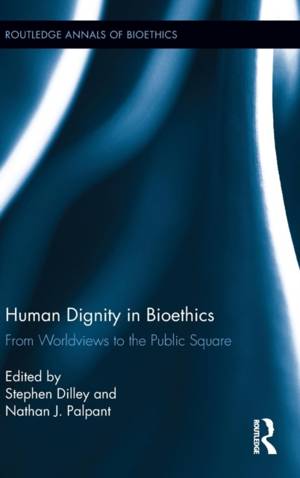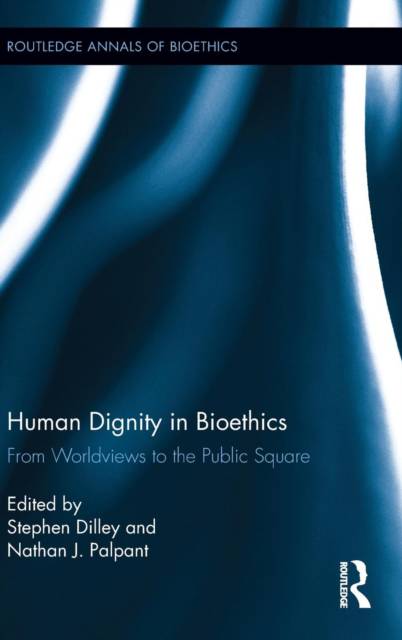
- Retrait gratuit dans votre magasin Club
- 7.000.000 titres dans notre catalogue
- Payer en toute sécurité
- Toujours un magasin près de chez vous
- Retrait gratuit dans votre magasin Club
- 7.000.0000 titres dans notre catalogue
- Payer en toute sécurité
- Toujours un magasin près de chez vous
Human Dignity in Bioethics
From Worldviews to the Public Square
Description
Human Dignity in Bioethics brings together a collection of essays that rigorously examine the concept of human dignity from its metaphysical foundations to its polemical deployment in bioethical controversies. The volume falls into three parts, beginning with meta-level perspectives and moving to concrete applications.
Part 1 analyzes human dignity through a worldview lens, exploring the source and meaning of human dignity from naturalist, postmodernist, Protestant, and Catholic vantages, respectively, letting each side explain and defend its own conception. Part 2 moves from metaphysical moorings to key areas of macro-level influence: international politics, American law, and biological science. These chapters examine the legitimacy of the concept of dignity in documents by international political bodies, the role of dignity in American jurisprudence, and the implications--and challenges--for dignity posed by Darwinism. Part 3 shifts from macro-level topics to concrete applications by examining the rhetoric of human dignity in specific controversies: embryonic stem cell research, abortion, human-animal chimeras, euthanasia and palliative care, psychotropic drugs, and assisted reproductive technologies. Each chapter analyzes the rhetorical use of 'human dignity' by opposing camps, assessing the utility of the concept and whether a different concept or approach can be a more productive means of framing or guiding the debate.
Spécifications
Parties prenantes
- Editeur:
Contenu
- Nombre de pages :
- 382
- Langue:
- Anglais
- Collection :
- Tome:
- n° 13
Caractéristiques
- EAN:
- 9780415659314
- Date de parution :
- 03-12-12
- Format:
- Livre relié
- Format numérique:
- Genaaid
- Dimensions :
- 160 mm x 229 mm
- Poids :
- 675 g

Les avis
Nous publions uniquement les avis qui respectent les conditions requises. Consultez nos conditions pour les avis.





